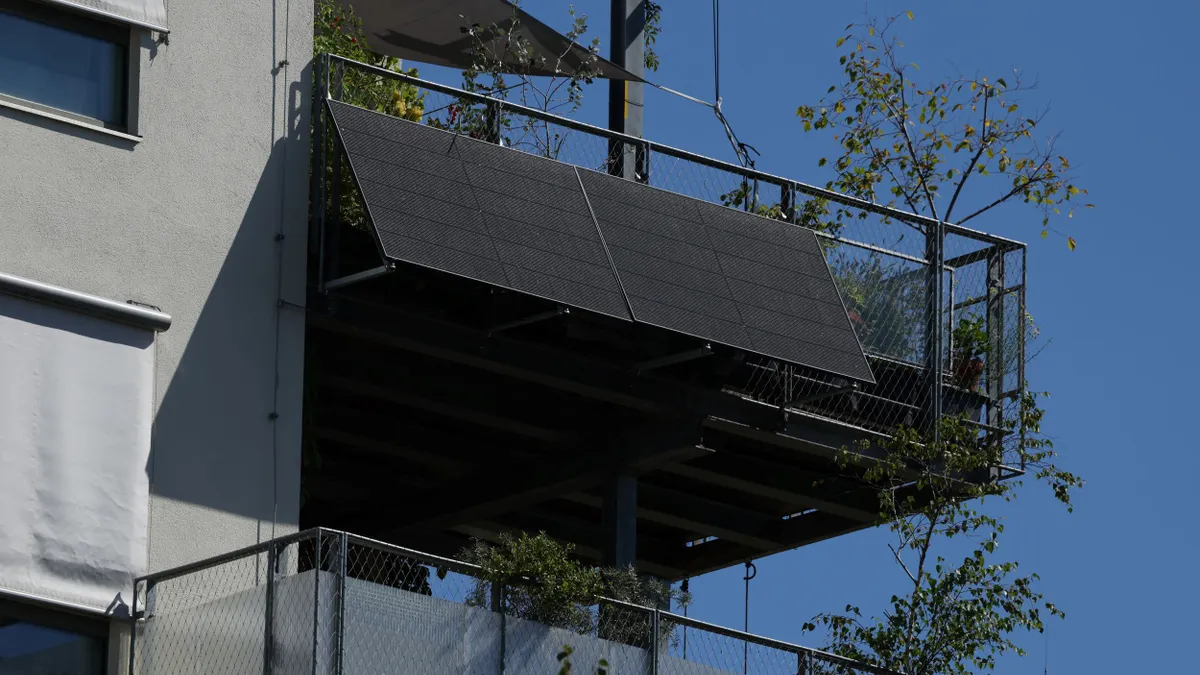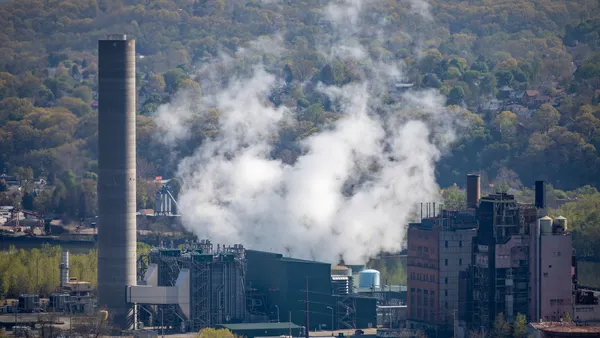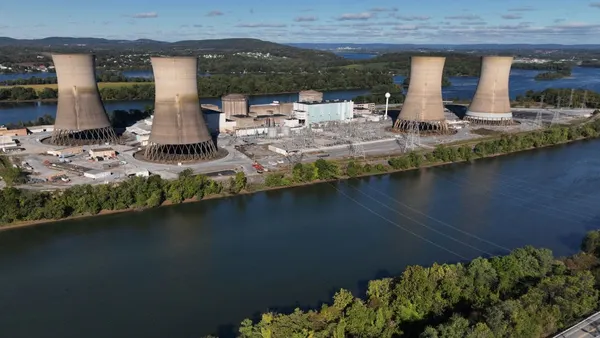Dive Brief:
- In an emergency order, the U.S. Department of Energy on Friday directed Consumers Energy to delay, by about three months, shutting down a 1,560-MW, coal-fired power plant in Michigan, saying the Midcontinent region faces possible power outages this summer.
- In determining that the J.H. Campbell power plant in West Olive, Michigan, should run until Aug. 21, past its planned May 31 shutdown, DOE cited a North American Electric Reliability Corp. report that found that the Midcontinent Independent System Operator faces an elevated risk of power outages during high demand or lower power output periods this summer.
- Public Citizen plans to challenge the DOE’s “abuse of emergency authorities” when Consumers Energy seeks to recoup its costs for running the Campbell power plant longer than expected in an expected proceeding at the Federal Energy Regulatory Commission, the consumer advocacy group said.
Dive Insight:
The Federal Power Act’s section 202(c) gives the DOE secretary the authority to temporarily order power plants to operate during wars and emergencies. It has been used 16 times since August 2020, according to DOE.
In January, President Donald Trump declared that the United States faces an “energy emergency” and in April he ordered DOE Secretary Chris Wright to develop a process for issuing emergency orders to keep power plants operating in areas of the country deemed to have potential grid reliability problems.
DOE cited two reports in finding that an emergency exists in MISO: NERC’s 2025 Summer Reliability Assessment issued on May 14 and the grid operator’s capacity auction results released in late April.
The NERC assessment found that MISO, the Electric Reliability Council of Texas, ISO New England and the Southwest Power Pool were at elevated risks of not having enough power supplies during stressed peak demand periods. No region was at high risk of electricity shortfalls, according to the report.
Citing a MISO report on the auction results, Wright said, “while the results ‘demonstrated sufficient capacity,’ the summer months reflected the ‘highest risk and a tighter supply-demand balance’ and the results ‘reinforce the need to increase capacity.’”
Wright ordered MISO to dispatch the Campbell power plant economically to minimize ratepayer costs. “Following conclusion of this order, sufficient time for orderly ramp down is permitted, consistent with industry practices,” Wright said.
DOE issued the emergency order without a request from the plant owner, transmission provider or grid operator, according to Ari Peskoe, director of the Electricity Law Initiative at the Harvard Law School Environmental and Energy Law Program.
“Prior to this order and the previous week’s order about Puerto Rico, DOE’s practice was not to actively search for emergencies but instead wait for affected parties to request an emergency order,” Peskoe said in an email. “It’s not clear from the order why DOE acted here without a request.”
Consumers Energy plans to comply with the DOE order, according to Brian Wheeler, a spokesman for the utility. “We are pausing decommissioning activities at the Campbell plant and will operate it in compliance with the order, working in conjunction with MISO,” Wheeler said in an email. Consumers Energy is working to determine appropriate cost recovery, consistent with applicable law and the DOE order, he said.
Like in other regions, power plant owners in MISO must get permission from the grid operator to retire a generating unit. MISO studies whether a power plant shutdown will hurt grid reliability. If reliability would be hurt, MISO can enter into a special contract with the power plant owner to keep the generating unit running until a solution to the reliability issue is put in place.
MISO in March 2022 approved Consumers Energy’s plan to suspend operations at the Campbell power plant by June 1, according to the CMS Energy utility. The grid operator has also approved Northern States Power’s plan to suspend operations on May 31 at its 190-MW, coal-fired Wheaton power plant in Wisconsin. The Xcel Energy utility is converting the Wheaton power plant to burn gas.
The Campbell power plant produced 6.6 million MWh in 2023, making it Michigan’s eighth biggest power supplier that year, down from 7.7 million MWh in 2022, according to the U.S. Energy Information Administration.
Earlier this month, Consumers Energy said it had adequate power supplies to meet its needs this summer. The Jackson, Michigan-based utility said it expects to expand its gas-fired Zeeland power plant by 50 MW by mid-June.















